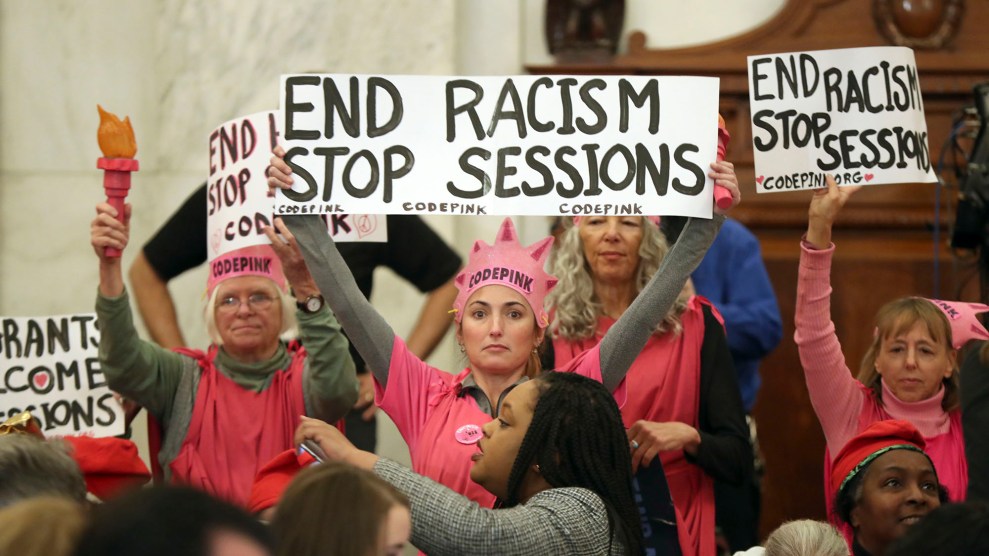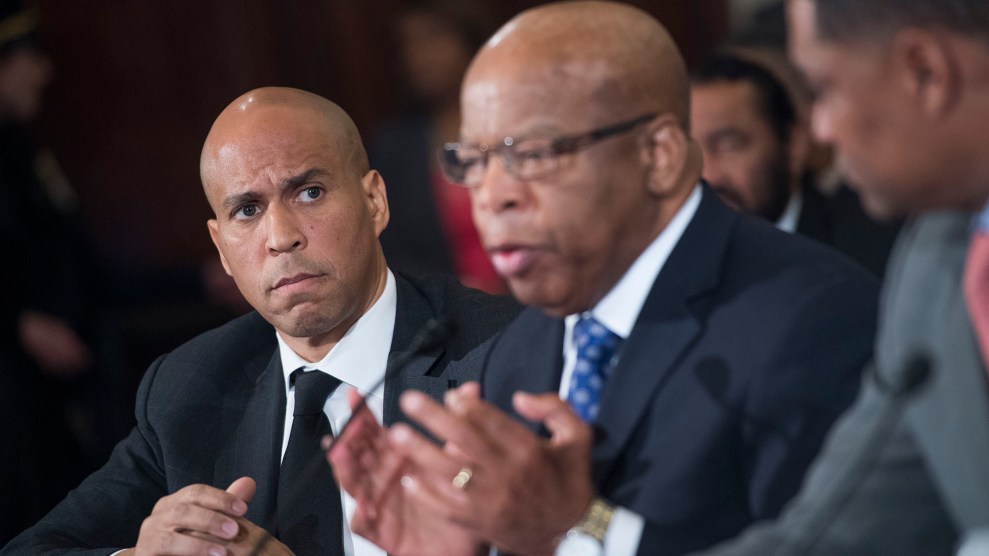
Sen. Patrick Leahy of Vermont, right.Tom Williams/CQ Roll Call via AP
Attorney general nominee Jeff Sessions, already criticized by Democrats for his civil rights record and his support of President Donald Trump’s refugee and travel ban, faced a withering attack Tuesday for his stance on another issue: violence against women.
Ahead of the Senate Judiciary Committee’s vote on Sessions’ nomination, Sen. Patrick Leahy (D-Vt.) tore into Sessions for his position on the Violence Against Women Act. Leahy, who until recently was the committee’s ranking Democrat, deviated from his prepared remarks and grew emotional as he addressed his longtime committee colleague.
During Sessions’ confirmation hearing earlier this month and in follow-up written questions, Leahy had pressed Sessions on his position on the Violence Against Women Act, a 1994 law that mandated and funded prosecutions for violent crimes against women and established the Justice Department’s Office of Violence Against Women, as well as on grant programs to provide resources to battered women. As Leahy noted Tuesday, the White House is reportedly using the conservative Heritage Foundation’s budget blueprint, which “calls for eliminating all Violence Against Women Act grants” overseen by DOJ. Sessions voted against the most recent reauthorization of the act, in 2013, which expanded the law’s protections to tribal lands, college students, and LGBT individuals. “I would defend the statute if it’s reasonably defensible,” Sessions told Leahy during his January 10 confirmation hearing.
“I asked Sen. Sessions to commit to stand up for women and preserve these critical programs,” Leahy said in his prepared remarks. “Again, he refused.”
Then Leahy, a former prosecutor, strayed from his prepared remarks to describe a time before the Violence Against Women Act. “I still have nightmares about some of the crime scenes I went to,” he said with emotion. “How could anybody who is going to be in a position to enforce our laws turn their back on that? Or suggest the law should only apply to certain classes of women?”







